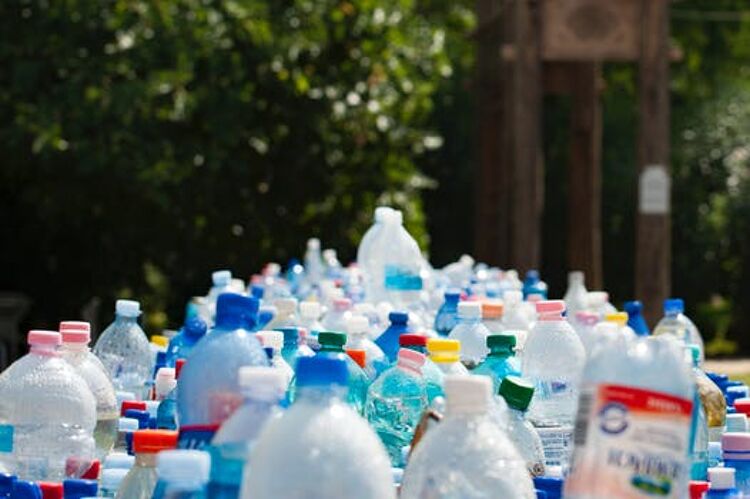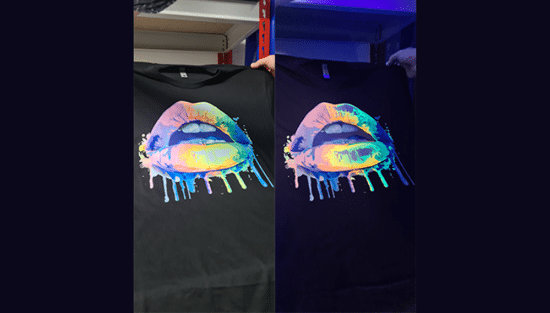Is it time to think bigger with ecolabelling?

Laurel Brunner discusses the growing importance of ecolabelling plastic waste in the graphics industry.
Circular economies are all well and good, but it takes dialogue at many levels, not least between governments. The urgency of dealing with plastic waste was illustrated in a recent report that a small town in Malaysia has become a primary dumping ground for plastic waste. The place is being buried under 17,000 tonnes of the stuff. Some of the plastic is classified as clean and some of it isn’t and has to be processed in some other way. According to the United Nations Environment Programme “In 2015, 47 percent of the plastic waste generated worldwide was plastic packaging waste half of which came from Asia with China being the largest culprit. However, the USA generates the most plastic packaging waste per person, with Japan and the European Union following.
Calls are being made for a labelling system to distinguish between different types of plastic waste for recycling. It’s a reasonable start that would ensure plastic waste gets routed appropriately, assuming recycling and reprocessing supply chains are in place. A problem is that ecolabels haven’t really take off, not in the graphics industry and not elsewhere.
Ecolabels aren’t desperately popular in many industrial sectors because they are seen as intrusive and expensive, delivering little benefit. This is of course not the point of an ecolabel, which is intended to confirm compliance to a given set of environmental criteria and to reassure consumers. A large part of the problem is that there is no real international coordination of ecolabelling schemes which are numerous and designed to operate in specific geographies. Efforts to internationalise labels such as the Nordic Swan which originated in Scandinavia, and Germany’s Blaue Engel have been underway for a while, but don’t seem to get very far, at least not in the graphics sector. The alternative is for regulation under the purview of governments. To be truly cross border, it may be time for some sort of international effort to standardise the ecolabels.
If governments are sincere about supporting circular economies, they should be reaching out across geographies to find out what can be done to support local industries and markets within an agreed regulatory system. There are many problems with trying to achieve an internationally recognised labelling scheme and environmental compliance, but the United Nations is well-placed to develop one and to get nations to adopt it. Alternatively, national governments could start working with industry sectors to develop the basis for an initiative that could be applied globally. Perhaps this might be a task for the European Union to undertake, once it’s free of the pesky Brits and their half baked Brexit expectations.
Source: This article was produced by the Verdigris project, an industry initiative intended to raise awareness of print’s positive environmental impact. This commentary helps printing companies keep up to date with environmental standards, and how environmentally friendly business management can help improve their bottom lines. Verdigris is supported by the following companies: Agfa Graphics, Spindrift.click, EFI, FESPA, HP, Kodak, Kornit Digital, Ricoh, Splash PR, Unity Publishing and Xeikon.
Topics
Interested in joining our community?
Enquire today about joining your local FESPA Association or FESPA Direct
Recent news

Streamlining personalisation with tech: Insights from the SmartHub Conference 2025 speakers
Personalisation Experience 2025 (6 – 9 May 2025, Messe Berlin, Germany) is running its inaugural SmartHub Conference from 6 – 8 May 2025.

Special Effects in DTF: How Neon Inks Are Making Apparel Pop
Neon fluorescent inks are the latest innovation in DTF printing, offering vibrant, eye-catching effects under both daylight and UV light, giving apparel decorators a competitive edge. Testing shows good wash durability, though market perception of added value is still developing. With increasing adoption and ongoing technological advancements, neon represents a significant upgrade for creative customisation.

Unlocking Growth Opportunities in the Printed Personalised Apparel Industry
The printed personalised apparel industry is booming, projected to reach $10.1 billion by 2030. Driven by consumer desire for self-expression and branding needs, technological advancements like DTG/DTF and e-commerce integration are key. Sustainability, eco-friendly materials, and on-demand printing are crucial growth drivers. Businesses leveraging these trends, including AI and social media, have significant commercial potential.

How to grow your business with white ink applications
Opaque white ink is revolutionising signage, vehicle graphics, wallcoverings, short-run and wood packaging, and window blinds by enhancing vibrancy and clarity. This enables printers to offer high-demand, standout products, boosting profit margins. HP Latex white ink applications and their large format printing solutions will be showcased at FESPA 2025 in Berlin.